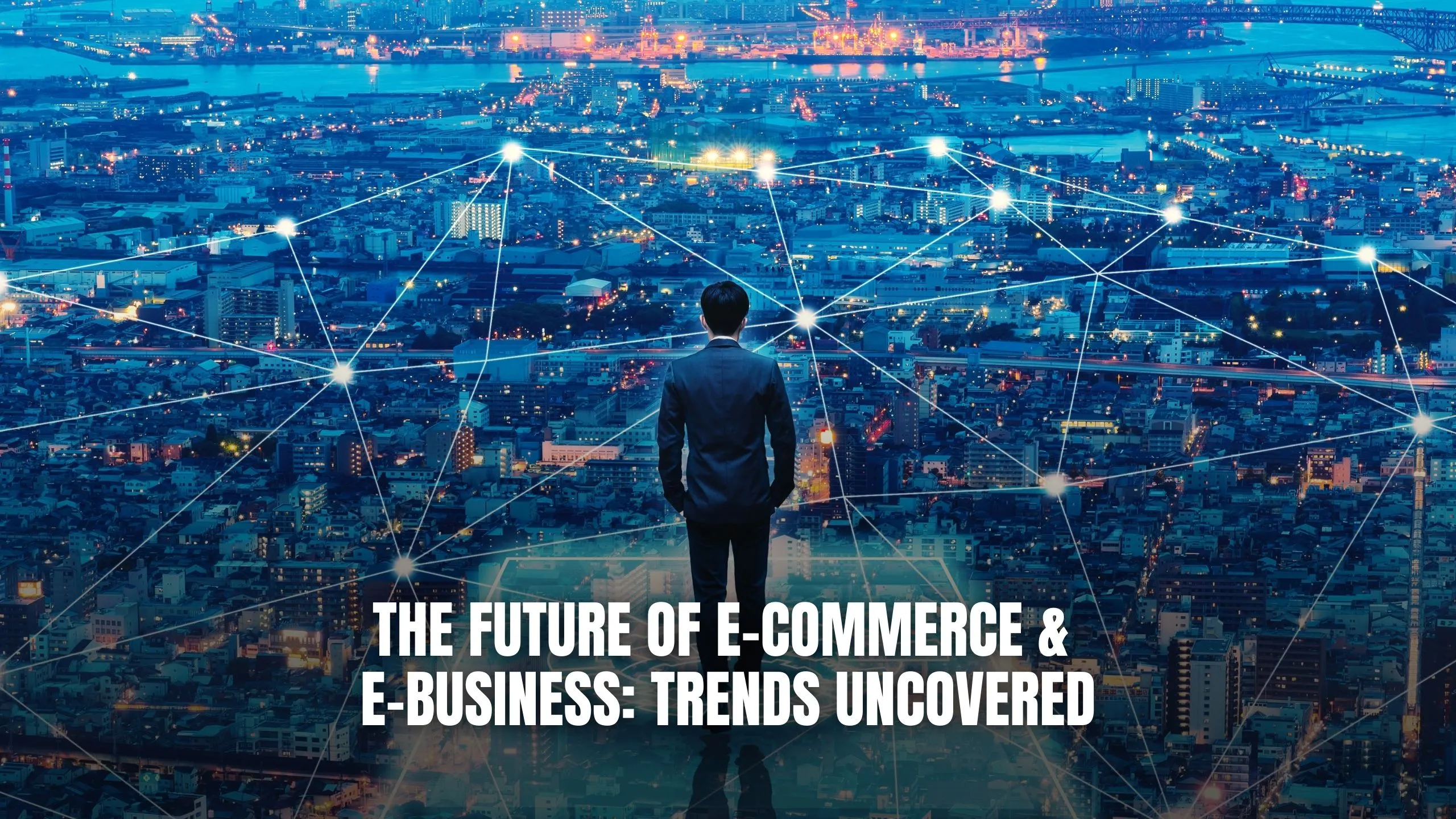The Future of E-Commerce & E-Business: Trends Uncovered


The Future of E-Commerce & E-Business: Trends Uncovered
The landscape of e-commerce and e-business is rapidly evolving, driven by technological advancements, changing consumer behavior, and emerging market trends. In this blog, we’ll explore the key trends shaping the future of e-commerce and e-business, from augmented reality shopping experiences to the rise of voice commerce and sustainable practices.
1. Augmented Reality (AR) Shopping Experiences
Augmented reality is revolutionizing the way consumers interact with products online, offering immersive shopping experiences that bridge the gap between the digital and physical worlds. Retailers are leveraging AR technology to allow customers to visualize products in their real-world environment before making a purchase decision. By enhancing the online shopping experience with interactive and personalized AR features, businesses can increase customer engagement, reduce returns, and drive sales.
2. Voice Commerce and Virtual Assistants
Voice commerce, powered by virtual assistants like Amazon’s Alexa and Google Assistant, is gaining momentum as more consumers embrace hands-free shopping experiences. Voice-enabled devices allow users to search for products, place orders, and track shipments using voice commands, making the shopping process more convenient and efficient. As voice recognition technology continues to improve, businesses that integrate voice commerce into their e-commerce platforms can stay ahead of the curve and cater to the growing segment of voice-first consumers.
3. Social Commerce and Influencer Marketing
Social media platforms are evolving into powerful e-commerce channels, blurring the lines between social networking and online shopping. With the rise of social commerce features like shoppable posts and in-app checkout, brands can directly monetize their social media presence and drive sales in a seamless, frictionless manner. Additionally, influencer marketing continues to play a significant role in e-commerce, with influencers acting as trusted advocates who promote products to their engaged audiences, driving traffic and sales for businesses.
4. Subscription-Based Services and Membership Models
Subscription-based services and membership models are becoming increasingly popular in the e-commerce space, offering consumers convenience, value, and personalized experiences. Businesses leverage recurring revenue models, from subscription boxes to streaming services, to cultivate lasting customer relationships and revenue streams. By providing subscription-based offerings, businesses can secure predictable revenue, improve customer retention, and enhance the overall shopping experience.
5. Sustainable Practices and Ethical Branding
As consumers become more environmentally conscious, businesses are embracing sustainable practices and ethical branding to meet the demand for eco-friendly products and transparent supply chains. From eco-friendly packaging and ethical sourcing to carbon-neutral operations and fair trade practices, companies are aligning their values with those of socially responsible consumers. Prioritizing sustainability attracts eco-conscious customers, sets businesses apart, and fosters brand loyalty in a competitive market.
Relevant SaaS Products:
- Shopify: E-commerce platform for setting up online stores, with customizable templates, secure payments, and built-in marketing tools for entrepreneurs.
- BigCommerce: Scalable e-commerce platform for growing businesses, featuring multi-channel selling, flexible shipping, and robust analytics to drive growth.
- Magento: Powerful e-commerce platform for tailored online stores, featuring flexible shopping carts, extensive product catalog management, and seamless third-party integration.
- WooCommerce: Customizable e-commerce plugin for WordPress, empowering businesses to sell products online, manage inventory, and optimize the shopping experience.
- Squarespace: All-in-one platform for creating professional online stores with customizable templates, integrated marketing tools, and secure payment processing.
Conclusion
The future of e-commerce and e-business is characterized by innovation, convenience, and sustainability, with emerging technologies and changing consumer preferences driving industry trends. From augmented reality shopping experiences to voice commerce, social commerce, subscription-based services, and sustainable practices, businesses must adapt to these trends to stay competitive in the digital marketplace. Businesses can thrive in e-commerce by embracing tech, customer-centricity, and sustainability to adapt to evolving landscapes.
Embrace the Future of E-Commerce with Subscribed.fyi!
Ready to navigate the evolving landscape of e-commerce and e-business? Subscribed.fyi offers exclusive deals on essential SaaS tools for businesses. Sign up for free to unlock secret deals and access savings on e-commerce platforms, marketing tools, and more. Stay ahead of the curve, drive growth, and unlock your business’s full potential with Subscribed.fyi.
Relevant Links:








